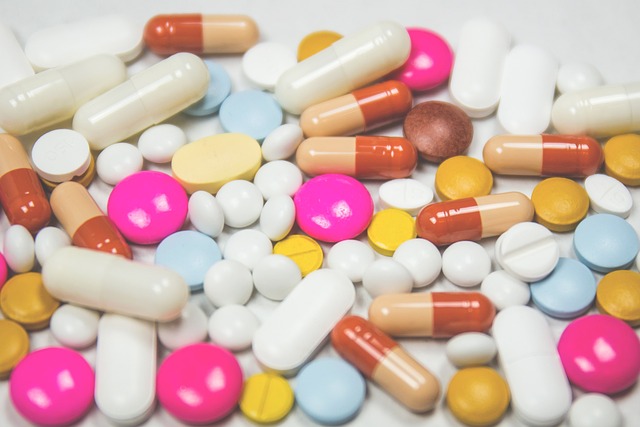Counterfeit medications pose a significant threat to public health worldwide. A “counterfeit medication” is one that appears genuine but is actually a mimic of a legitimate drug or treatment. Counterfeit medications are frequently created without proper safety control or regulations, potentially resulting in a range of serious health consequences for consumers. In this article, we discuss some potential side effects and consequences of counterfeit medications.
Table of Contents
Immediate Health Risks Associated With Counterfeit Medications
An immediate consequence of counterfeit medications is their frequent lack of efficacy. Knockoff drugs may contain more or less of the active ingredient present in the legitimate medication. This can potentially cause a consumer to suffer from an over- or underdose. In many cases, the counterfeit medication will have little to no effect in treating the patient’s illness, causing them to become more sick over time.
Beyond simply being ineffective, counterfeit medications can be downright dangerous to a patient’s health. Knockoff treatments may be contaminated with harmful substances like toxic chemicals, heavy metals, or even undisclosed pharmaceutical ingredients. These substances can cause a number of adverse effects, from allergic reactions to organ damage. In some cases, using contaminated medications can poison the consumer or even cause fatal harm.
As a real-world example of counterfeit medications, there have recently been lawsuits over unlicensed variants of Ozempic being used. For cases such as this, an Ozempic injury lawyer may be involved to fight for those harmed by defective or counterfeit medications.
What Are the Long-Term Consequences of Counterfeit Medications?
The short-term effects of counterfeit medications can be significant, but there are also potential long-term consequences connected to their use. Take the widespread use of counterfeit antibiotics as an example. When less-potent knockoff medications are used, it’s likely that they will not kill all targeted bacteria. The surviving bacteria become more resistant to antibiotics, including genuine treatment methods. Over time, this antimicrobial resistance makes it significantly harder to effectively treat a population’s health problems.
Chronic use of counterfeit medications, such as if a patient is unaware that they are not using the approved variant of a drug, can lead to long-term organ damage. Counterfeit versions may contain incorrect dosages of active ingredients, placing undue stress on the body’s organs. There is a particularly high risk of liver and kidney damage since those organs process medications. Over time, these dangerous medications can cause organ dysfunction or failure.
Psychological & Emotional Effects of Counterfeit Medications
In addition to the physical effects of ingesting counterfeit medications, there can be a considerable psychological and emotional impact as well. Patients may feel anxiety and stress once they learn that they have been taking what is essentially a placebo for some length of time. Consumers may experience fear of treatment failure, worry about the potential health consequences, and a general sense of unease regarding their health.
An additional consequence of counterfeit medications is that they can erode trust in the healthcare system. Patients may lose faith in their healthcare provider and pharmacist to provide them with safe, effective treatments for future illnesses. This can leave people feeling reluctant to seek out care or adhere to existing treatment plans, further eroding their health over time.
Economic & Social Ramifications of Counterfeit Medications
Consumers who unknowingly purchase counterfeit drugs end up wasting money on ineffective or downright hazardous treatments. In many cases, additional treatment or procedures will be required to counteract the effect of counterfeit medications. The costs of these additional treatment methods can quickly add up.
The social consequences of counterfeit medications can be just as impactful as the physical, emotional, and economic effects. People may find themselves facing scrutiny or discrimination for suffering adverse effects from counterfeit drugs. Judgment of this nature can lead to social isolation and a further decline in the patient’s overall well-being.
Protecting Yourself from Counterfeit Medications
There is no way to entirely eliminate the risk of coming into contact with counterfeit medications, but you can take steps to reduce the chances of accidentally using knockoff drugs. We suggest the following:
- Consult with Healthcare Professionals: Always discuss any questions you have with your healthcare provider or a licensed pharmacist. They can answer your questions, recommend effective treatments, and verify that a prescription is legitimate.
- Purchase from Licensed Pharmacies: Be certain to only purchase medications from licensed pharmacies of healthcare providers who acquire their supplies through legitimate sources.
- Be Wary of Online Pharmacies: If you elect to purchase from an online pharmacy, be sure to carefully review their business before making a purchase. Verify their credentials, ensure they require a valid prescription, and look for signs of legitimacy before going through with an order.
- Inspect Packaging and Medication: Carefully inspect medication packaging for signs of tampering. Read the label thoroughly as well and check for proper spelling and accurate information.
We hope this article helps you stay safe the next time you go to the pharmacy to pick up a prescription!
Featured Image by StockSnap from Pixabay




